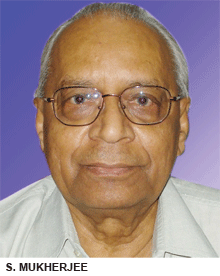 High cut-offs demanded by the country’s best colleges and the mad annual scramble for school and college admissions are enough proof that the demand for high quality arts, commerce and science as also professional education by far exceeds supply.
High cut-offs demanded by the country’s best colleges and the mad annual scramble for school and college admissions are enough proof that the demand for high quality arts, commerce and science as also professional education by far exceeds supply.
Encouragement and spread of distance education (DE) offer a practical solution to this problem. But shortsighted bureaucrats and vested interests are thwarting efforts to disseminate and popularise DE. There is little public outcry against this, because most people aren’t aware of the power and potential of DE. In the public mind, it is synonymous with correspondence courses and the media largely ignores it except for occasional stories of wrongdoing.
However, DE has advanced far beyond correspondence courses which were about home delivery of reading materials to pass exams. Now huge advances in ICT (information communication technologies) and the internet in particular, enable students to complete higher education without attending traditional universities or colleges. In conveniently accessible learning centres they can receive online lectures from globally renowned professors and experts supplemented by face-to-face guidance from local academics.
The popularity of DE — particularly MOOC (massive open online courses) — programmes is growing by leaps and bounds abroad. In the US about 20 percent of all undergraduates signed up for DE programmes in 2007-08, according to the US department of education, National Center for Education Statistics (2011). The current enrolment in DE programmes is estimated at 25 percent.
In the neighbouring People’s Republic of China, a hybrid DE learning system was improved with the establishment of CERNET (Chinese Educational and Research Network), which introduced advanced distance learning programmes in the 1990s. Currently this higher ed network run by the central government has 100 major universities linked to it and soon all universities, higher education institutes and schools from the primary level will be linked to CERNET.
On the other hand in India, there are far too many regul-ators of distance education. Among them are the Distance Education Council (DEC), All India Council for Technical Education (AICTE) and the University Grants Commission (UGC). According to DE specialists, all these organisations are anxious to assert their ‘control’ over DE programmes introduced by universities and institutions. Parliamentary legislation with all-India jurisdiction is conspicuously lacking, giving these self-appointed regulatory authorities considerable leeway to issue confusing and contrary diktats.
The Supreme Court in a well considered judgement delivered on April 25 this year, in Association of Management of Private Colleges vs. All India Council for Techn-ical Education & Ors (CA 1145 of 2004), ruled that although the MCA (Master of computer applications) postgrad programme is a technical subject, universities offering this study programme, don’t come under the regulatory ambit of AICTE, and at best AICTE’s role can only be advisory. Likewise, business management (MBA) programmes offered by universities.
Another supervisory authority of distance education is the Indira Gandhi National Open University (IGNOU), established in 1985 as a Central university by a special Act of Parliament. In 1991, IGNOU promoted the Distance Education Council. Since then, DEC had widened its jurisdiction to approve all DE programmes including those of autonomous universities, arrogating powers without the specific sanction of Parliament. This questionable extension of IGNOU’s power has created bad blood between IGNOU and the country’s 639 universities, with DEC supervising all universities offering DE programmes.
Nevertheless despite bureaucratic hurdles, the DE system in India has grown from a thousand students in 1962 to nearly 3.7 million in 2009-10, the latest year for which data is available. This number is not insubstantial given that the total number of students enrolled in higher education aggregates a mere 13.7 million. Graduates educated in the DE mode constitute almost 25-30 percent of the country’s professionally qualified and skilled workforce. This also explains why over 100 universities currently offer DE study programmes.
However, educrats in the unholy regulatory triumvirate — UGC, AICTE and DEC — who have done little for higher education except block new initiatives, seem hell-bent on smothering DE, providing a typical example of multimodal governance which ensures that everything gets bogged down in red tape and inter-institutional squabbling.
It is estimated that 800 more bricks-n-mortar universities are required to meet the demand for traditional higher education. But with a mere one percent of GDP invested in higher education annually, making tertiary education available to 70 percent of youth in the relevant age group is a near impossibility. Therefore study programmes through the DE mode and MOOCs in particular, offer the only solution. The possibilities are enormous, and hence the vital importance of freeing DE provision from onerous bureaucratic controls. The regulatory framework is not only hydra-headed, but rotten with corruption.
(Sadhan Mukherjee is a former journalist and chairman of the Delhi-based Media Features India Pvt. Ltd)























